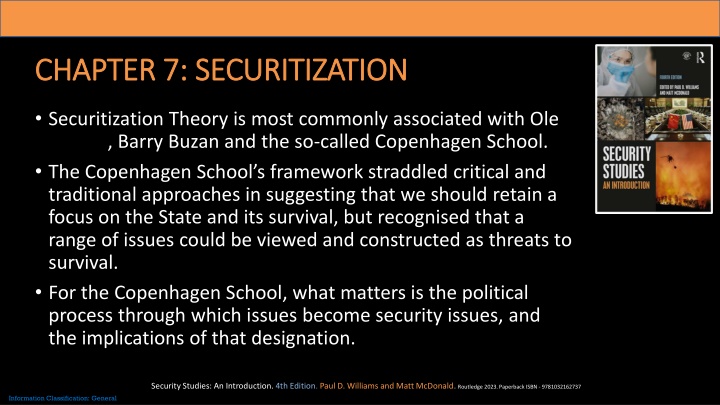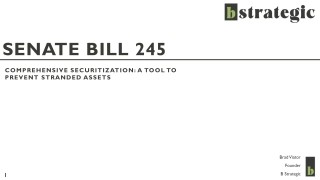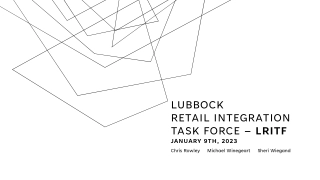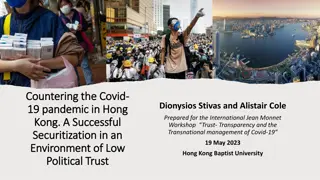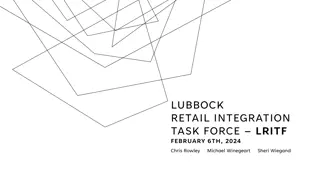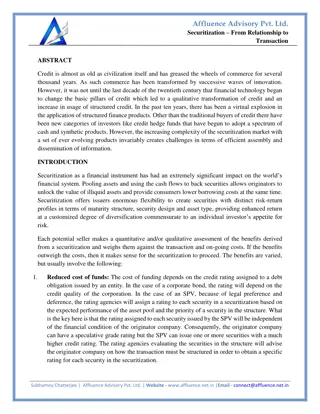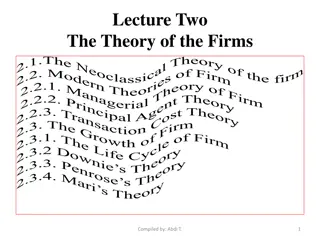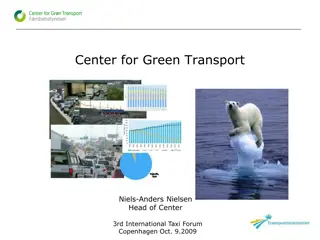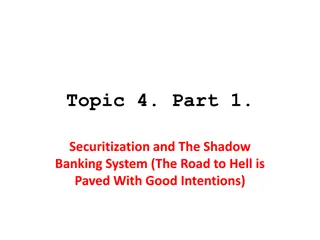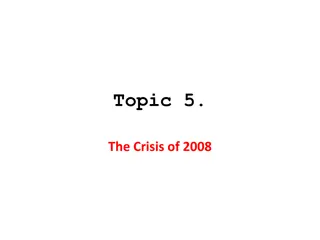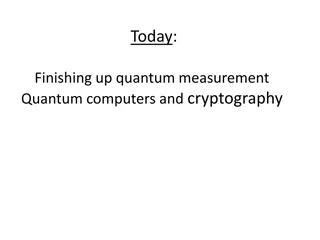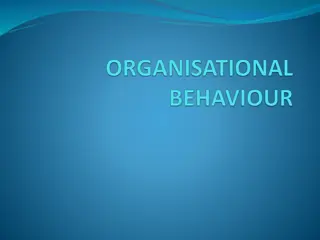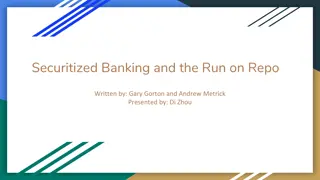Securitization Theory: Key Contributors and Copenhagen School
This content introduces the concept of securitization theory and its association with prominent figures like Ole Wæver and Barry Buzan from the Copenhagen School. Explore the foundations and implications of securitization theory in the realm of international relations and security studies.
Download Presentation

Please find below an Image/Link to download the presentation.
The content on the website is provided AS IS for your information and personal use only. It may not be sold, licensed, or shared on other websites without obtaining consent from the author.If you encounter any issues during the download, it is possible that the publisher has removed the file from their server.
You are allowed to download the files provided on this website for personal or commercial use, subject to the condition that they are used lawfully. All files are the property of their respective owners.
The content on the website is provided AS IS for your information and personal use only. It may not be sold, licensed, or shared on other websites without obtaining consent from the author.
E N D
Presentation Transcript
CHAPTER 7: SECURITIZATION CHAPTER 7: SECURITIZATION Securitization Theory is most commonly associated with Ole W ver, Barry Buzan and the so-called Copenhagen School. The Copenhagen School s framework straddled critical and traditional approaches in suggesting that we should retain a focus on the State and its survival, but recognised that a range of issues could be viewed and constructed as threats to survival. For the Copenhagen School, what matters is the political process through which issues become security issues, and the implications of that designation. Security Studies: An Introduction. 4th Edition. Paul D. Williams and Matt McDonald. Routledge 2023. Paperback ISBN - 9781032162737 Information Classification: General
WHAT IS SECURITIZATION THEORY? WHAT IS SECURITIZATION THEORY? Securitization theory suggests that security is a speech act: rather than something to be defined by analysts, security is actually brought into being through actors (usually powerful actors like State leaders) defining an issue as an existential threat. This in turn, if accepted by a relevant audience, enables emergency measures to deal with that threat. In the process, the framework draws on the speech act theory developed by linguist J.L. Austin. But it also draws on the work of political theorist Carl Schmitt in its focus on the exceptional logic that is enabled if an issue is approached as a security issue. The core focus of securitization is less what security is, and more what security does i.e., how it enables emergency measures. Security Studies: An Introduction. 4th Edition. Paul D. Williams and Matt McDonald. Routledge 2023. Paperback ISBN - 9781032162737 Information Classification: General
Key Terms and Concepts the process by which issues become part of the security agenda, which moves them out of regular politics and enables extraordinary measures. Securitization an utterance that is also an act: by saying, something is done. This makes security different from most forms of speech. Speech act the person or group that performs a securitizing move. A successful securitizing actor is usually in a position of authority. Securitizing actor an attempt by an actor to present something as an existential threat to a referent object. It has to follow the grammar and logic of security. Securitizing move Referent object the object positioned as in need of protection in a securitizing move. Desecuritization the process by which issues are removed from the security agenda. Sectors of security Buzan et al identify five different sectors of security that have distinctive dynamics. Facilitating conditions conditions which affect the likelihood a securitization will be successful. whichever group the securitizing move tries to convince of the securityness of an issue by means of an argument calling for extraordinary measures. Audience Security Studies: An Introduction. 4th Edition. Paul D. Williams and Matt McDonald. Routledge 2023. Paperback ISBN - 9781032162737 Information Classification: General
KEY DEBATE 1: THE LIMITS OF THE SPEECH KEY DEBATE 1: THE LIMITS OF THE SPEECH ACT? ACT? Severalcritics have suggested that the speech act is too limited as a form of representation that gives meaning to security and threat. For Paris School approaches, associated with Didier Bigo in particular, the focus should be less on specific moments of speech and more on processes and routines. The Paris School draws on the work of sociologist Pierre Bourdieu, and some have used his work directly to suggest the need to focus on practices, not just speech, in giving meaning to security. Others, such as Lene Hansen, suggest that images can be important in the construction of threat and security. Security Studies: An Introduction. 4th Edition. Paul D. Williams and Matt McDonald. Routledge 2023. Paperback ISBN - 9781032162737 Information Classification: General
KEY DEBATE 2: THE LOGIC OF SECURITY KEY DEBATE 2: THE LOGIC OF SECURITY POLITICS POLITICS The securitization framework works with a clear distinction between politics and security. The former is defined by liberal processes of deliberation, discussion and oversight; the latter by urgency, secrecy and exceptionalism. Some critics, such as Wilkinson (2007), suggest that this distinction doesn t work as well outside contexts of liberal democratic politics. In some contexts, what looks like the exceptional might be normal politics. Other critics suggest this distinction is too binary, with Rita Abrahamsen (2005: 59), for example, suggesting that security issues move on a continuum from normalcy to worrisome/troublesome to risk to existential threat . Security Studies: An Introduction. 4th Edition. Paul D. Williams and Matt McDonald. Routledge 2023. Paperback ISBN - 9781032162737 Information Classification: General
KEY DEBATE 3: WHAT ABOUT THE AUDIENCE, WHAT KEY DEBATE 3: WHAT ABOUT THE AUDIENCE, WHAT ABOUT POWER? ABOUT POWER? A key debate about the securitization framework has been the question of whether the speech act itself constructs threats or the audience acceptance of those speech acts? Thierry Balzacq (2005) argues that there is a tension in the framework between a focus on the power of the speech act and the importance of audience endorsement. A further question here concerns whether, if audience endorsement is important, what exactly this looks like, and how we know it s been forthcoming? This also speaks to questions of power. If the audience role is marginal to the framework, or less important to analysis than those actors proclaiming security , then audiences can be viewed as passive recipients of elite speech acts. Lene Hansen (2000) suggests that a focus on elite speech acts means potentially ignoring the security experiences of those without powerful voice. Security Studies: An Introduction. 4th Edition. Paul D. Williams and Matt McDonald. Routledge 2023. Paperback ISBN - 9781032162737 Information Classification: General
KEY DEBATE 4: WHEN SHOULD WE DE/SECURITIZE? KEY DEBATE 4: WHEN SHOULD WE DE/SECURITIZE? Another key issue for the securitization framework is whether security is or can ever be a good thing. For the Copenhagen School, securitization involves a logic of exceptionalism, secrecy and even militarism that is generally best avoided. They therefore suggest that desecuritization is usually preferable. In contrast, the Aberystwyth School (see chapter 5), thinks security should be defined as emancipation, and its mobilising potential is such that we should engage and redefine security rather than give up on it. Rita Floyd (2019) has attempted to develop a theory of just securitization an account of when securitization or desecuritization might be morally defensible. Security Studies: An Introduction. 4th Edition. Paul D. Williams and Matt McDonald. Routledge 2023. Paperback ISBN - 9781032162737 Information Classification: General
KEY DEBATE 5: IS SECURITIZATION THEORY KEY DEBATE 5: IS SECURITIZATION THEORY RACIST? RACIST? A recent debate that elicited strong responses was whether securitization theory was racist . In a Security Dialogue article, Richter and Montpetit (2020) suggested that the vision of normal politics in the framework points to a civilized political space in need of protecting from barbarism, thereby privileging a vision of politics tied to European civilization. The article triggered sustained debate and a response from Buzan (2020), with defenders variously suggesting the critics worked with a narrow conception of the framework, a broad definition of racism, and ignored the origins of the framework in attempting to make sense of liberal states problematic responses to immigration. It nonetheless encouraged important debates about the field s assumptions and positions of privilege in International Relations and security perspectives post-colonial approaches have drawn to our attention (see chapter 8). Security Studies: An Introduction. 4th Edition. Paul D. Williams and Matt McDonald. Routledge 2023. Paperback ISBN - 9781032162737 Information Classification: General
CONCLUSION CONCLUSION The success of the securitization framework is evident in how widely it has been employed to come to terms with a range of issues that don t seem to fit with traditional accounts of security but nonetheless seemed to be viewed and approached as security issues. This applies to issues like irregular immigration, climate change, and more recently, COVID-19. Despite its faults and key points of debate, securitization encourages us to focus less on what academics think security is or should mean, and more on how political communities themselves give meaning to their security and what threatens it. Security Studies: An Introduction. 4th Edition. Paul D. Williams and Matt McDonald. Routledge 2023. Paperback ISBN - 9781032162737 Information Classification: General
ESSAY / EXAM QUESTIONS ESSAY / EXAM QUESTIONS To what extent do you agree with the Copenhagen School s claim that security is a speech-act ? How critical is securitization theory? Should we securitize climate change? What about COVID-19? Is securitization theory Western-centric? Does securitization theory lack a normative agenda? Is security the opposite of politics? Using an example of your own choosing, what are the implications of securitizing that particular issue? Is securitization theory racist? Security Studies: An Introduction. 4th Edition. Paul D. Williams and Matt McDonald. Routledge 2023. Paperback ISBN - 9781032162737 Information Classification: General
WEBSITES AND AUDIO WEBSITES AND AUDIO- -VISUAL RESOURCES Introducing securitization VISUAL RESOURCES Ole Waever introduces securitization theory (2014): https://www.youtube.com/watch?v=wQ07tWOzE_c Barry Buzan on Security: o Part one: http://www.youtube.com/watch?v=dqdzRjSlz34&feature=related o Part two: http://www.youtube.com/watch?v=1MTuzqgaook&feature=related o Part three: http://www.youtube.com/watch?v=WU4RjPJ4sAM&feature=related o Part four: http://www.youtube.com/watch?v=eePKuBCJBXc&feature=related o Part five: http://www.youtube.com/watch?v=DIljrbRnfY4&feature=related Films with securitization themes Contagion (2011) https://www.youtube.com/watch?v=4sYSyuuLk5g Canadian Bacon (1995) http://www.youtube.com/watch?v=ayOlQ9If_cA Don t Look Up (2021) https://www.youtube.com/watch?v=RbIxYm3mKzI Race and Securitization Theory Whiskey and IR podcast, episode 9: Race and Securitization Theory: https://podtail.com/da/podcast/whiskey-international-relations- theory/episode-9-race-and-securitization-theory/ Hayes, It Isn t Just About Waever and Buzan , Duck of Minerva: https://www.duckofminerva.com/2020/05/it-isnt-just-about-waever-and- buzan.html Security Studies: An Introduction. 4th Edition. Paul D. Williams and Matt McDonald. Routledge 2023. Paperback ISBN - 9781032162737 Information Classification: General
